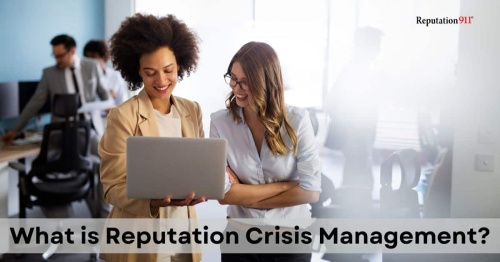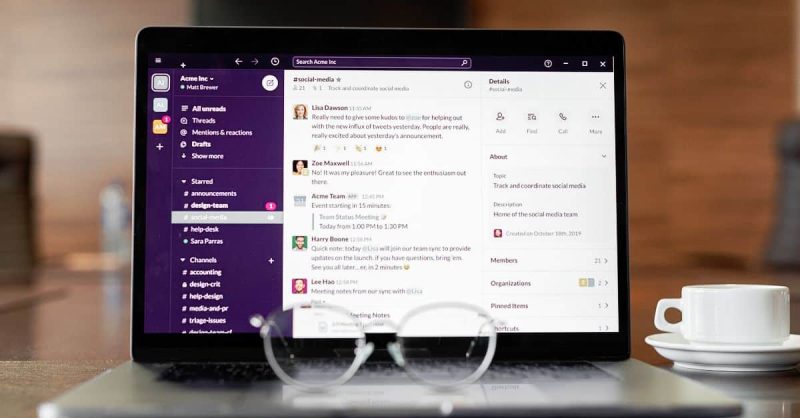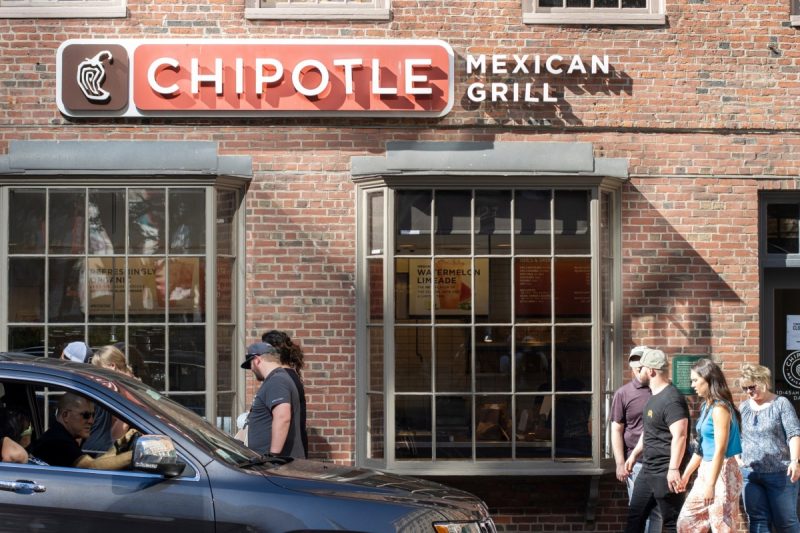Reputation is the modern brand’s most valuable asset. For both businesses and high-profile individuals, maintaining a positive online reputation is crucial to success. But, what happens when a crisis strikes? Online reputation crises can quickly spiral out of control, causing irreparable damage to your image and bottom line.
That’s where reputation crisis management comes in. Effective crisis management can help you mitigate the damage, protect your reputation, and turn this bad situation into an opportunity to emerge even stronger.
In this blog post, we’ll explore types of reputational crises, stages of crisis management, and strategies you can use to navigate these challenges effectively.

A reputational crisis is any event that threatens to damage the perception of a person or an organization. These days, crises often unfold online, where a single negative tweet, review, or article can quickly devolve into a PR reputation nightmare.
Reputation crisis management is about mitigating the damage that occurs during these critical events. The goal is to take back control of the narrative, protect your brand’s image, and restore trust among stakeholders.
Anyone with an online presence is vulnerable to reputational threats.
However, some individuals and businesses are more susceptible and require proactive measures:
Celebrities, politicians, athletes, and other public figures are constantly in the spotlight. They are a personal brand of one, and their reputations are their most valuable asset.
Even minor missteps can quickly escalate into major personal reputation crises.
From small startups to Fortune 500 companies, businesses of all sizes are vulnerable to reputation crises. Negative reviews, social media attacks, and employee scandals can all damage a company’s image and impact its bottom line.
CEOs, board members, and other leaders have a significant impact on an organization’s reputation. Their actions and decisions can make or break a company’s image.
Companies that rely heavily on online channels for sales and marketing are particularly vulnerable to reputation crises. Negative online content can quickly damage their brand image and deter potential customers.
Influencers rely on their online reputation and personal brand to attract followers, secure partnerships, and build their businesses. Any damage to their image can directly impact their earning potential and career trajectory.
Reputation crises can erupt at any time, from various sources. Here are some of the most common types:
All of the crises mentioned above can leave a lasting mark on your brand’s online presence through search results.
When someone searches for your brand name, negative content can appear prominently, amplifying the crisis and potentially reaching a wider audience.
This creates a vicious cycle:
This is why addressing online brand reputation crises promptly and effectively is so critical. By taking control of the narrative, you can prevent negative search results from dominating your brand’s online presence.
Don’t let negative content define your brand. Reputation911’s content removal and suppression services help you take control of your search results, pushing down harmful content and restoring your online reputation.
Get a free consultation today and start rebuilding your digital presence.
Navigating an online reputation crisis involves a three-pronged approach: preparation, response, and recovery. Each stage plays a critical role in mitigating the damage and protecting your brand.
Goal: Strengthen your online presence to leverage it later when a crisis hits.
Steps to take:

Goal: Mitigate the negative impacts of the crisis by disassociating the crisis away from the individual, business, or brand.
Steps to Take:
Goal: Restore one’s online image by removing and/or suppressing negative, unwanted, or inaccurate results and links generated during the crisis, while strengthening the positive.
Steps to Take:

In February 2022, Slack experienced a significant outage that disrupted communications for many businesses. Frustrated users took to Twitter, LinkedIn, and Reddit to express their dissatisfaction.
Online searches for “slack down” spiked, leading to negative media coverage and frustration from companies relying on the service.
The brand risks losing trust as competitor apps like Microsoft Teams and Zoom gained attention in online discussions.
Slack managed the situation by remaining transparent, offering continuous updates on their status page, Twitter account, and blog. They responded directly to customers on social media, acknowledging their concerns.
Slack quickly resolved the issue and reassured users that preventative steps were being taken.
Result: By acting swiftly and maintaining clear communication, Slack avoided long-term reputation damage and retained user trust.
📌 Online Reputation Lesson: Acknowledging issues quickly and maintaining a clear, real-time crisis communication strategy can prevent long-term reputational harm.

Between 2015 and 2016, a series of E. coli outbreaks linked to Chipotle locations caused a media firestorm. This led to a drop in customer confidence and a surge of search results for queries like “chipotle food poisoning” and “is chipotle safe”.
Negative reviews flooded platforms like Yelp and Google reviews, affecting sales. The company’s stock price fell by 37% and they faced a $25 million fine.
In response, Chipotle shut down affected locations to investigate and improve food safety measures. They launched both an online and offline PR campaign emphasizing their new safety measures.
Chipotle also gave away free burritos, among other promotions, discounts, and loyalty program initiatives to win back customers.
Result: While it took time, Chipotle regained trust, and their search results improved as positive content about their reforms replaced old negative stories.
📌 Online Reputation Lesson: Transparency, corrective action, and reputation management strategies (such as content creation and PR campaigns) are essential to restoring brand credibility after a crisis.
A reputation crisis can happen to anyone – businesses, public figures, and brands alike. Whether it’s a viral social media backlash, negative press, or damaging search results, how you respond determines whether you recover stronger or lose trust permanently.
By acting quickly, monitoring online conversations, and implementing strategic crisis management, you can regain control of the narrative.
At Reputation911, we remove negative content from search results and suppress negative content to help you restore and protect your online reputation. Don’t let a reputation crisis define your future – take action today.
Call for a free consultation at 1-866-697-3791 or fill out our consultation form.